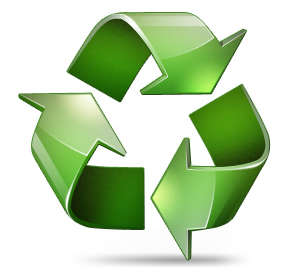In a world where technological items are updated regularly and upgrades are constantly flooding the market, e-waste has become an increasing problem. Objects categorised as e-waste include computers, DVD players, televisions, washing machines, fridges, batteries, laptops and mobile phones. Approximately more than a million tonnes of equipment a year is discarded by domestic and commercial users in the UK alone because it is broken, obsolete or outdated.
Although recycling would seem the obvious way to deal with this waste many countries do not have the recycling expertise to handle this equipment as items such as these are generally made up of different material and substances; this makes them complicated to handle and dismantle. Many also contain toxic substances such a lead, bromine, cadmium, arsenic and mercury.
While, across the world, electrical and electronic waste (WEEE) may still terminate in Landfill, increasingly objects are ending their functional life on a beach in Africa or Asia, being dismantled by local people without proper safety equipment. Children are breaking down the equipment in an effort to find valuable substances such as iron, copper, silicone and nickel that they can sell. Gold can be extracted via dangerous methods from computer circuit boards which makes them a precious commodity. Copper can be removed from wires via a burning process that releases toxins which can cause chest and lung problems. Whilst these toxins become carcinogenic when they are released into the air, the mercury and lead found in e-waste items can also permeate the soil when the equipment is being disassembled thus being ingested by plants and entering the food chain. Despite the fact that dumping waste is in direct violation of international legislation, it is widely thought that it is transported to these places on the promise of being recycled or re-used.
In the hope of engendering recycling of materials, people in many places are seeking to introduce the crucial education for locals in uninjurious methods which can lead to the safe removal of the prized substances so noticeably depended upon for financial security. In New Zealand waste has been sent to accredited recycling companies in South Korea where accepted international processes are used to ensure the workers safety whilst recovering the valuable materials within a product. For an item to be adequately recycled the object must be dismantled into its various original components, such as circuit boards, metal frames, glass and plastics. Re-use is another option for equipment that has exceeded its usefulness in one situation, although it is only a matter of time before this also terminates on the burgeoning heap that is e-waste.


Red Data – Business IT Support, Sussex
Business IT, Computer & Network Support Across Sussex
